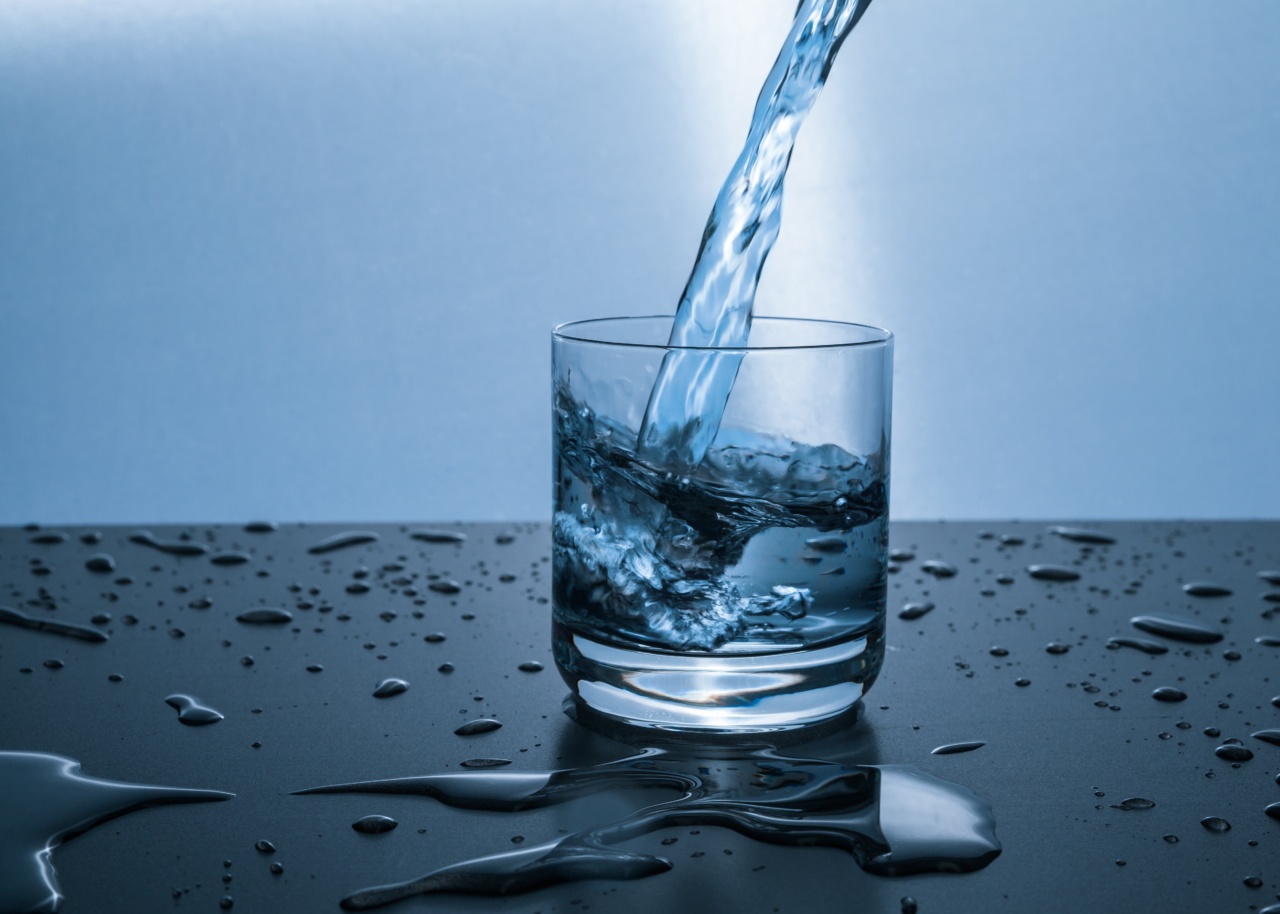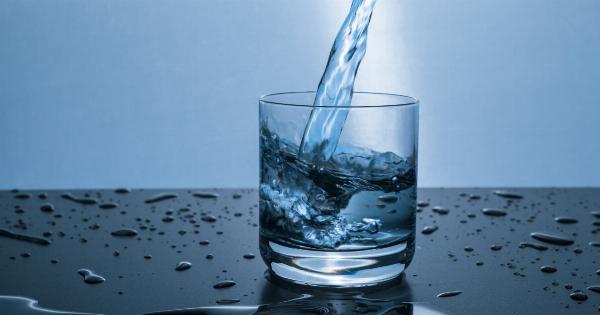When it comes to staying hydrated, most people believe that drinking water is the only solution. While water is undoubtedly essential for maintaining good hydration levels, it’s not the only answer.
Hydration is about more than just the amount of water you consume; it’s a complex process that involves the balance of fluids and electrolytes in your body. In this article, we will explore the truth about hydration and delve into the various factors that influence it.
The Importance of Hydration
Before we dive into the details, let’s first understand why hydration is so crucial. Water comprises about 60% of our body weight, and it plays a vital role in various bodily functions. Proper hydration is necessary for:.
- Regulating body temperature
- Transporting nutrients
- Cushioning joints and organs
- Aiding digestion
- Flushing waste and toxins
- Maintaining proper blood volume
Without adequate hydration, our bodies cannot perform these functions optimally, leading to a range of health issues. Dehydration can cause fatigue, dizziness, muscle cramps, headaches, and even cognitive impairment.
That’s why it’s crucial to maintain proper hydration levels throughout the day.
Factors Affecting Hydration
Hydration is not a one-size-fits-all concept; various factors influence our individual hydration needs. Let’s explore some of these factors:.
1. Physical Activity
Engaging in physical activities increases our body’s fluid loss through sweating. When we exercise, we not only lose water but also essential electrolytes like sodium, potassium, and magnesium.
Therefore, it’s essential to replenish fluids and electrolytes during and after exercise to maintain proper hydration levels.
2. Climate
The climate we live in or the weather conditions we experience can significantly impact our hydration. In hot weather, our bodies naturally sweat more to cool down. This increased sweating leads to higher fluid loss and the need for increased hydration.
Similarly, in dry climates, the dry air can cause increased evaporation from our skin and respiratory system, affecting our overall hydration status.
3. Age
Age plays a role in determining our hydration requirements. Infants and young children have higher water needs per kilogram of body weight compared to adults. Older adults may also be prone to dehydration due to a decreased sensation of thirst.
Therefore, it’s important to be mindful of age-specific hydration needs.
4. Health Conditions
Certain health conditions, such as diabetes or kidney disorders, can affect our body’s ability to retain and excrete fluids.
People with these conditions may have specific hydration requirements and need to work closely with healthcare professionals to maintain proper hydration levels.
5. Medications and Diuretics
Some medications, such as diuretics, can increase urine production and lead to higher fluid loss. If you are taking any medications, it’s essential to consult with your healthcare provider to understand their impact on your hydration needs.
Beyond Water: The Role of Electrolytes
While water is undoubtedly the primary source of hydration, electrolytes play a crucial role as well. Electrolytes are minerals that help maintain fluid balance, regulate muscle contractions, and support nerve function.
The key electrolytes involved in hydration are:.
- Sodium
- Potassium
- Calcium
- Magnesium
These electrolytes are present in various foods and beverages, not just water. Consuming electrolyte-rich foods and drinks can help replenish these minerals and maintain proper fluid balance in the body. Some examples of electrolyte-rich foods include:.
- Bananas (high in potassium)
- Spinach (contains magnesium and calcium)
- Oranges (contain potassium and calcium)
- Coconut water (rich in potassium and sodium)
- Yogurt (contains calcium and magnesium)
By incorporating electrolyte-rich foods and drinks into your diet, you can enhance your hydration and overall wellness.
Signs of Dehydration
Knowing the signs of dehydration is crucial to prevent its adverse effects. Some common signs of dehydration include:.
- Thirst
- Dry mouth and throat
- Dark-colored urine
- Headache
- Dizziness or lightheadedness
- Fatigue
If you experience any of these symptoms, it’s important to rehydrate yourself promptly. Remember, prevention is always better than cure.
Tips for Optimal Hydration
Here are some practical tips to help you stay optimally hydrated:.
1. Drink Regularly, Even When Not Thirsty
Don’t rely solely on your thirst mechanism to remind you to drink water. By the time you feel thirsty, you might already be mildly dehydrated. Make a habit of sipping water throughout the day, even when you don’t feel thirsty.
2. Customize Your Hydration Approach
Consider your individual hydration needs based on factors like climate, activity level, and overall health. Adjust your fluid intake accordingly to meet your body’s requirements.
3. Incorporate Electrolyte-Rich Foods and Beverages
Include electrolyte-rich foods and drinks in your diet to replenish minerals and maintain proper fluid balance. This can include fruits, vegetables, sports drinks, and electrolyte-enhanced water.
4. Monitor Your Urine Color
Keep an eye on the color of your urine. Pale or light yellow urine indicates proper hydration, while dark-colored urine suggests dehydration. Use urine color as a simple indicator to assess your hydration status.
5. Limit Alcohol and Caffeine
Both alcohol and caffeine act as diuretics, increasing urine production and fluid loss. Limit your intake of these beverages, especially during periods of high activity or in hot weather.
6. Set Hydration Goals
Establish daily hydration goals based on your body weight, activity level, and climate. Aim to meet these goals by tracking your water intake and adjusting as necessary.
Conclusion
Hydration goes beyond just drinking water. While water is vital, it’s equally important to consider other factors like electrolyte balance, physical activity, and individual needs.
By understanding the truth about hydration, you can take proactive measures to maintain optimal fluid balance in your body. Remember, each person is unique, and what works for one may not work for another. Listen to your body, stay mindful of your hydration needs, and make choices that promote overall wellness.































